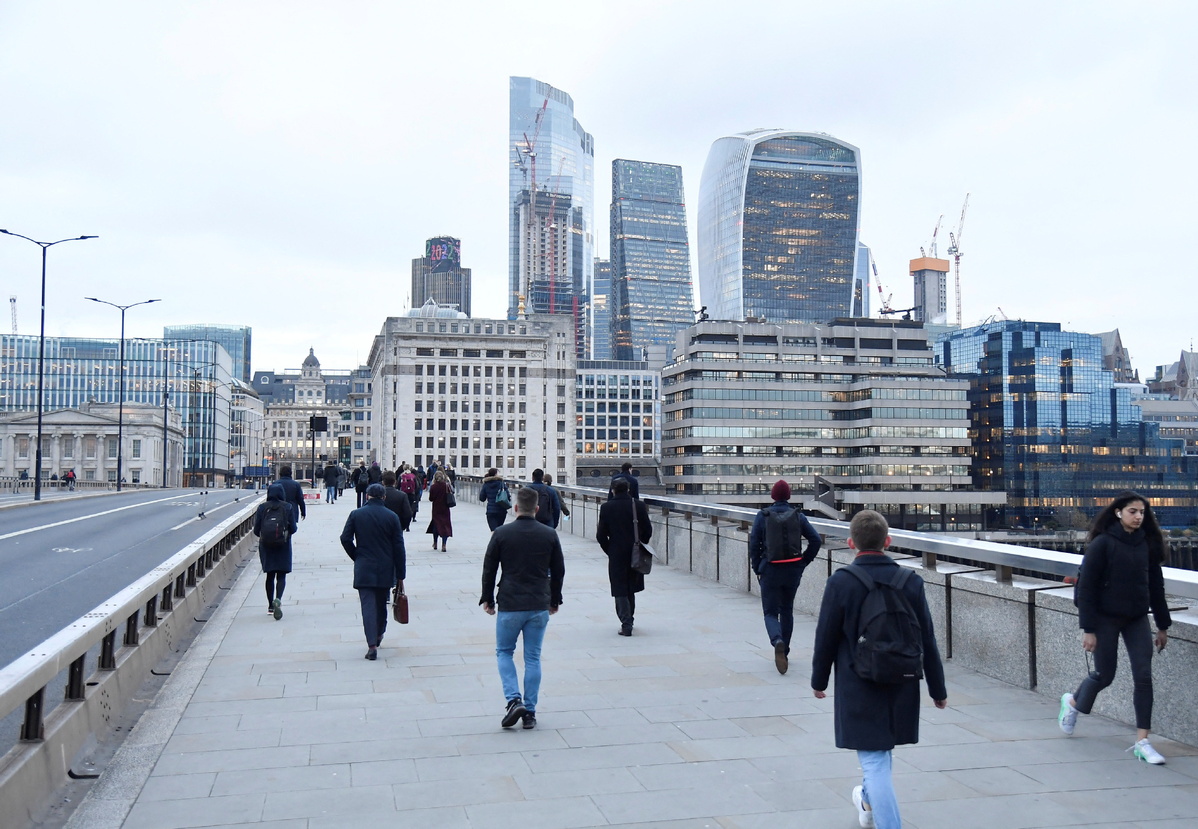
Workers cross London Bridge, with the City of London financial district seen behind, during the morning rush-hour in London, Britain, Jan 4, 2022. [Photo/Agencies]
The United Kingdom's economy has continued to send mixed signals after the latest figures from the Office for National Statistics, or ONS, showed a slight increase in the number of people who were unemployed during the last quarter, along with pay growth slowing down but remaining above the rate of inflation.
In the three months to September, the rate of unemployment rose slightly to 4.3 percent, up from 4 percent in the previous quarter. Job vacancies also fell, for the 28th month in a row, reaching their lowest level since May 2021.
"The labor market continues to split with signs of employers' weakening intentions to hire at the same time as a welcome fall in inactivity," said Matthew Percival, from business lobby group the Confederation of British Industry. "These figures come against a backdrop of rising concern about spiraling employment costs, which are set to increase following last month's national insurance contributions rise, the employment rights bill, and the latest increase in the national living wage."
An increase in employers' national insurance contributions was one of a number of tax rises announced by Chancellor of the Exchequer Rachel Reeves in her budget speech at the end of October, the first delivered by the new government that came to power following the general election in July.
Major supermarket chains Sainsbury's and Asda have warned that the rise in national insurance contributions could cost them 140 million pounds ($179.4 million) and 100 million pounds respectively, which may result in higher prices for consumers.
Isaac Stell, investment manager at investment platform Wealth Club, told Sky News the rise in unemployment, which had "exceeded expectations by some margin", could set "alarm bells ringing in the halls of Westminster", coming so soon after the budget.
"This increase serves as a warning sign to the government following on from the budget where businesses saw a large increase in the level of national insurance contributions they will have to pay," he said. "If these additional costs restrict hiring and cause jobs to be lost, its so-called growth agenda will be further scrutinized."
Average weekly earnings in the United Kingdom for the three months to September, not including bonuses, were 4.8 percent higher, the slowest rate of growth in nearly two years, fueling speculation that central bank the Bank of England may take a cautious approach to interest rate cuts, having reduced them by 0.25 percent to 4.75 percent earlier this month.
Work and Pensions Secretary Liz Kendall admitted "more needs to be done to improve living standards", but said major employment reforms were coming soon that would enable many of the 2.8 million people currently unable to work on health grounds to re-enter the world of employment.
In addition, she said, from next April more than 3 million of the lowest-paid workers will benefit from an increase in the national living wage.